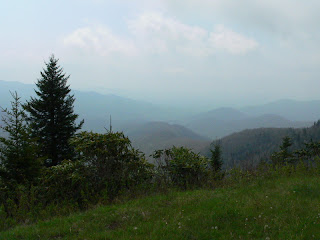Kathy Mattea: Calling Me Home

In some ways, this is a musical journey Mattea began when she was preparing her album Coal In other ways it is a journey she began long before that, growing up the granddaughter of miners, being drawn to bluegrass and folk music in her teenage years, and leaving West Virginia for Nashville. Mattea’s mainstream country albums have always included an element of mountain spirit and mountain music, howver subtle, because that is a part of who she is as a musician. “Folk music really was my doorway into country music,” she says. At the height of her Grammy winning country music reign, Mattea took time to travel to Scotland and immerse herself in Celtic music to refresh her thoughts. With Calling Me home, Mattea made time to immerse herself in the music of Appalachia and to understand what she could learn from it and what she could bring to it. Respect for the music of the mountains and its sources and a spirit of discovery as to what this music could be background Mattea’s work on this recording.
There is a song on Calling Me Home which takes place in those moments when a miner’s wife, learning that there’s trouble at the mine, makes her way to find out the fate of her husband. With her understated yet intense delivery, Mattea speaks the words of this woman in a way that makes that world and those moments world immediate. The song, written by Jean Ritchie, is called West Virginia Mine Disaster. Holding both love of family and realities of life in the mountains, and connecting these with lives lived beyond Appalachia, it is a centerpiece of the album.

A Far Cry, which opens the album, is a high stepping bluegrass tune, with that bluegrass gift for framing a sad lyric with a lively tune and making them fit well together. Mattea has friends accompanying her on the journey of Calling Me Home, and this tale of a lover who chose a rambling life and returned to the mountains too late is a fine way to meet several of them. Stuart Duncan is on fiddle, banjo, and other things, Jim Brock adds percussion, Bill Cooley is on acoustic guitar, Bryan Sutton on banjo mandolin, and other instruments, and Byron House on bass through the tracks on the album. Emmylou Harris, Patty Loveless, and Tim and Mollie O’Brien are among those who add backing vocals for several cuts.

All the songs are gems, really. They are sequenced in a line worth the following bothmusically and lyrically, too. Change and landscape and reflections on all that are present in The Wood Thrush’s Song. There’s the lively swagger and thought provoking ideas in Hello My Name is Coal, the benediction of Agate Hill, the spiritual with a warning note in Now Is the Cool of the Day. In the title track, Calling Me Home, a man on his death bed says he will leave his stories and songs behind “as sweet traces of gold.” Bringing the recording to a close, there’s is the quiet grace of Requiem for a Mountain, an instrumental piece by Bill Cooley.
Traces of gold indeed. Mountain songs are often thought to be a bit disconnected from today’s world, to be the distant province of scholars. With Calling Me Home, Kathy Mattea continues to show that the songs themselves, and the landscapes and people from which they come, are a vibrant, living part of the world whose joys and sorrows we all share.
Kathy Mattea talks about the album: "Each record teaches you something..."
you my also wish to see
Kathy Mattea sings John Martyn
Music Road trip in West Virginia
Songwriters gather in Minnesota
photographs of Appalachian hillside and of Kathy Mattea in performance by Kerry Dexter
-->Your support for Music Road is welcome and needed. If you are able to chip in, here is a way to do that, through PayPal. Note that you do not have to have a PayPal account to do this. Thank you.
Another quick way to support: you could ![]()
If you enjoy what you are reading here, I've recently begun publishing an occasional newsletter at Substack with more stories about music, the people who make it, and the places which inspire it. Come visit and check it out!
Labels: american folk music, american south, americana music, appalachians, bill cooley, blogsherpa, kathy mattea, usa, west virginia








